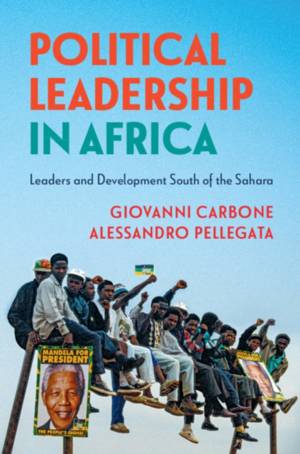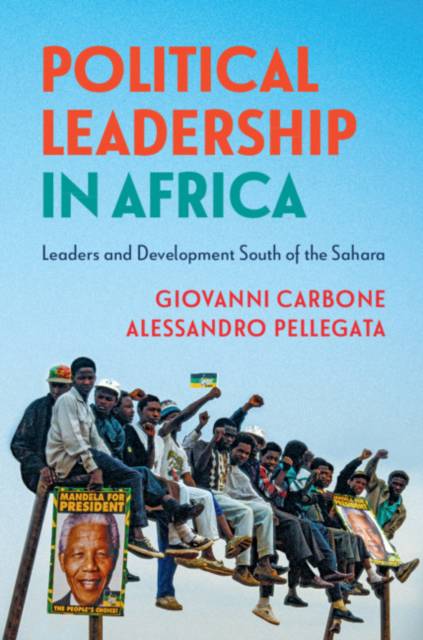
Door een staking bij bpost kan je online bestelling op dit moment iets langer onderweg zijn dan voorzien. Dringend iets nodig? Onze winkels ontvangen jou met open armen!
- Afhalen na 1 uur in een winkel met voorraad
- Gratis thuislevering in België vanaf € 30
- Ruim aanbod met 7 miljoen producten
Door een staking bij bpost kan je online bestelling op dit moment iets langer onderweg zijn dan voorzien. Dringend iets nodig? Onze winkels ontvangen jou met open armen!
- Afhalen na 1 uur in een winkel met voorraad
- Gratis thuislevering in België vanaf € 30
- Ruim aanbod met 7 miljoen producten
Zoeken
Political Leadership in Africa
Leaders and Development South of the Sahara
Giovanni Carbone, Alessandro Pellegata
Paperback | Engels
€ 59,45
+ 118 punten
Uitvoering
Omschrijving
Do political leaders matter for development in Africa? Political leaders south of the Sahara have taken centre stage since countries in the region gained independence in the 1960s, yet a 'leadership trap' soon emerged with power-holders overstaying in office and chronic instability caused by coups resulting in decades of disappointing developmental performances. The beginnings of change are found in political reforms of the early 1990s, with many sub-Saharan countries introducing multiparty elections and an increasingly regular succession of leaders. But what impact did the new mechanisms for selecting leaders have on the political stabilization of African states, on the growth of their economies, and on the welfare of ordinary citizens? Drawing on a new dataset called the Africa Leadership Change (ALC), this innovative analysis of political leadership in Africa investigates the distinct leadership dynamics of development processes across the region from 1960 to 2018, revealing how, as Africa began to change its leaders and the way they reach power, these new leaders themselves began to change Africa.
Specificaties
Betrokkenen
- Auteur(s):
- Uitgeverij:
Inhoud
- Aantal bladzijden:
- 390
- Taal:
- Engels
Eigenschappen
- Productcode (EAN):
- 9781108438315
- Verschijningsdatum:
- 23/04/2020
- Uitvoering:
- Paperback
- Formaat:
- Trade paperback (VS)
- Afmetingen:
- 165 mm x 224 mm
- Gewicht:
- 544 g

Alleen bij Standaard Boekhandel
+ 118 punten op je klantenkaart van Standaard Boekhandel
Beoordelingen
We publiceren alleen reviews die voldoen aan de voorwaarden voor reviews. Bekijk onze voorwaarden voor reviews.











